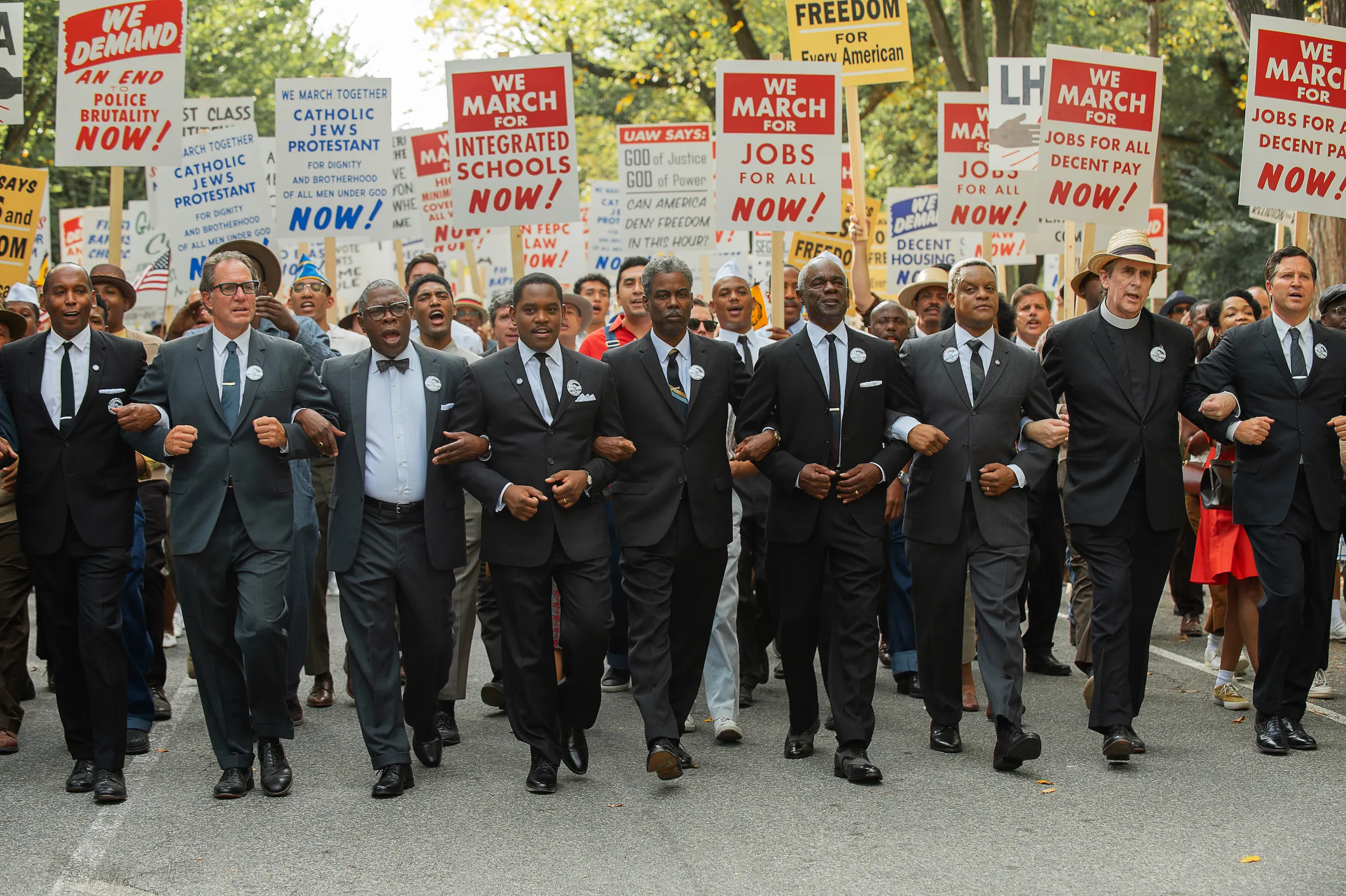
It’s Oscars season, and amongst a fairly predictable line-up of nominees is the nomination of Colman Domingo for his role as Bayard Rustin in the Netflix biopic Rustin. Rustin was a gay black activist who was the chief architect of the 1963 Civil Rights March on Washington which led to the creation of the Civil Rights Act nine months later. Domingo’s well-deserved nomination is notable as he is the first gay man to be nominated for an Oscar for a role playing a gay man.
The 1950s and 1960s were a particularly tough time for queer people and most stayed in the closet, living furtive, secretive lives. Pre Stonewall, homophobia was rife and the few bars catering to a queer clientele were largely owned by the mafia and regularly raided by the cops with subsequent arrests, beatings, and public humiliation. Bayard Rustin was a rare exception to the rule and was unapologetically out and proud. He worked very closely with Martin Luther King on the Civil Rights Movement, so closely in fact, that rumors about the two men’s relationship (“Martin Luther King and his Queen”) led King to terminate Rustin’s employment abruptly after many years of service. Rustin’s homosexuality grated with his fellow black activists – the irony of their intolerance lost on them. This is one of the main themes of the film and is an issue still relevant today – look at the intolerance of many feminist activists to the trans community.
 This did not deter the passionate and energetic Rustin and he created his own team of activists, including an ex-boyfriend, to work independently of Martin Luther King and organize America’s then-largest protest march ever. The March for Jobs and Freedom on Kennedy’s White House government only had six weeks of organization, a budget of $65k, and galvanized 250,000 peaceful protestors from all over America. This is when Martin Luther King, now reconciled with Rustin, gave his famous ‘I Have A Dream” speech.
This did not deter the passionate and energetic Rustin and he created his own team of activists, including an ex-boyfriend, to work independently of Martin Luther King and organize America’s then-largest protest march ever. The March for Jobs and Freedom on Kennedy’s White House government only had six weeks of organization, a budget of $65k, and galvanized 250,000 peaceful protestors from all over America. This is when Martin Luther King, now reconciled with Rustin, gave his famous ‘I Have A Dream” speech.
Directed by George C Wolfe, written by Julian Breece and Dustin Lance Black and executively produced by Barack and Michelle Obama, Rustin is surrounded by a smorgasbord of talent. This also includes a new track by Lenny Kravitz in the soundtrack, and a supporting role by Chris Rock as Roy Wilkins, a fellow member of the NAACP, the National Association for the Advancement of Coloured People.
We follow Rustin as he deals with homophobic fellow activists (which include the Black Panthers), racist authorities, a troubled love life and attempts in the media to discredit him for his queerness. His inner strength and passion prevail as he squares with Martin Luther King (Aml Ameen) to create history. Wolfe’s optimistic drama is powerful and an important history lesson about an unsung gay black hero. It’s not without its faults. At times the production feels slightly formulaic, studio based and unoriginal – very Netflix – but the film needs to provide a lot of historical information very quickly so this is excused. Excellent period set design is complemented by great casting, vintage footage and a strong soundtrack. Domingo effortlessly captures Rustin’s vitality and thirst for equality as he ram-raids his opponents. Johnny Ramey also shines as Elias Taylor, Rustin’s troubled religious pastor boyfriend – Jeffrey Wright too, as the homophobic Rep. Adam Clayton Powell.
An important, informative, entertaining piece of queer history.
Queerguru’s Contributing Editor Ris Fatah is a successful fashion/luxury business consultant (when he can be bothered) who divides and wastes his time between London and Ibiza. He is a lover of all things queer, feminist, and human rights in general. @ris.fatah

